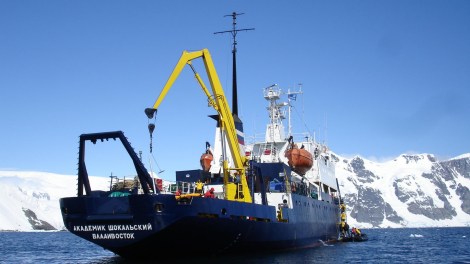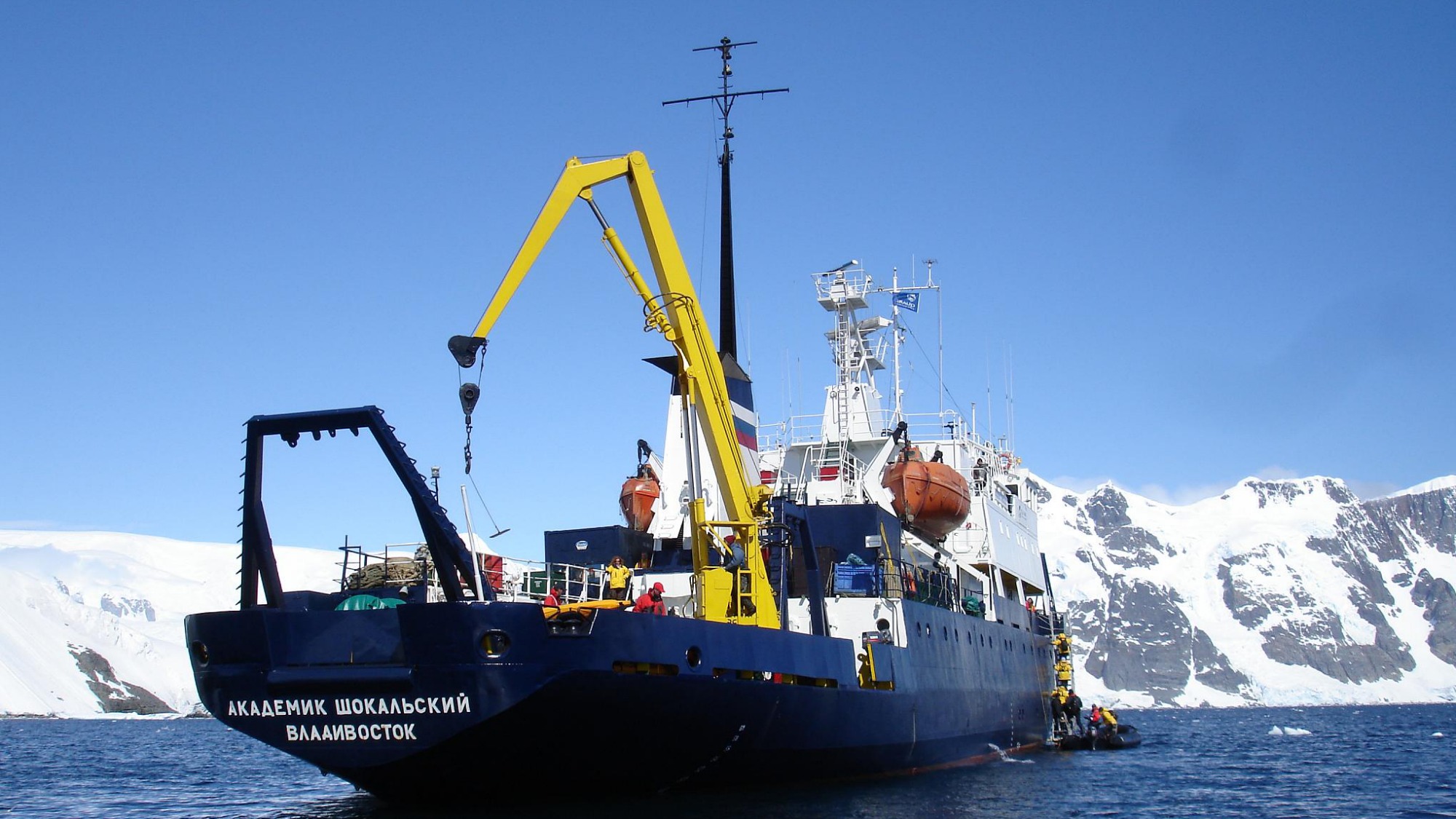
M RThe MV Akademik Shokalskiy in happier times.
A team of Antarctic researchers was rescued after spending nine days “stuck,” as one of the scientists put it, “in our own experiment.”
Members of the Australasian Antarctic Expedition were among 52 passengers aboard the MV Akademik Shokalskiy when it became trapped in sea ice on Dec. 24. Rescue efforts were thwarted for more than a week by bad weather, but on Thursday the scientists and tourists were finally airlifted by a Chinese helicopter to the safety of an Australian icebreaker:
https://twitter.com/GdnAntarctica/statuses/418702239960539136
The scientists had planned to study how the melting of B09B, one of the world’s biggest icebergs, is triggering a buildup in surrounding sea ice and altering deep ocean currents.
“We followed Sir Douglas Mawson‘s footsteps into Commonwealth Bay, and are now ourselves trapped by ice surrounding our ship,” wrote scientists Chris Turney in a statement.
Even while international teams scrambled to rescue the crew, the fossil fuel industry’s henchmen delighted in the scientists’ predicament, excitedly pointing to the emergency as a reminder that ice still exists in cold places. (And, yes, sea ice around Antarctica is expanding even as glaciers, the Arctic, and other parts of Antarctica melt, pushing up sea levels and altering worldwide weather patterns — confusing though that might be for those who do not try to understand science.)
Despite their plight and right-wing media mockery, the researchers celebrated in style on New Year’s Eve. A video shows them in high spirits, laughing and singing about “having fun doing science in Antarctica,” even as they lamented the “bloody great shame” of being stuck there:
Agence France-Presse reports on their makeshift New Year’s Eve party:
“It was rather amazing actually,” [Turney] told AFP via Skype from his remote location. “We set this tent up on top of the deck. It was very cosy. There was a lot of excitement.
“It was just what the team needed, letting their hair down for a bit and forgetting about their worries and concerns.”
He said those onboard were keeping busy — either continuing to pack up the scientific equipment on the boat or taking part in seminars ranging from sewing to salsa dancing and reflecting the skills of those trapped on the vessel.
Now that the 52 passengers have been rescued, things will get even lonelier for the 22 crew members aboard — they are planning on staying with the vessel in hopes that the ice around it will eventually break up naturally.



